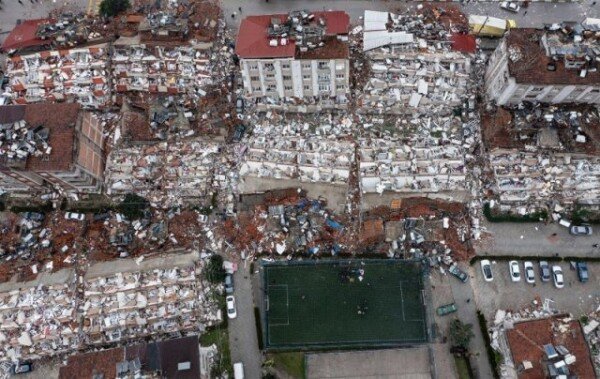The death toll from the 7.8 magnitude earthquake that struck southern Turkey and northern Syria on the morning of the 6th (local time) exceeded 7,800. Turkiye has declared a state of emergency for three months in 10 southeastern provinces badly hit by the earthquake.
According to AFP and Reuters on the 7th, the Turkiye Disaster Authority announced that the death toll exceeded 5894 and the number of injured exceeded 31,000. In Syria, 1,932 people were killed and over 4,000 were injured, both in government and rebel-controlled areas.
The World Health Organization (WHO) feared that the death toll from the quake could exceed 20,000. Catherine Smallwood, WHO’s senior emergency planning officer for Europe, told AFP on the 6th, “In many cases, the number of casualties increases significantly during a week after an earthquake occurs.”
In Turkey, rescue teams are mobilizing all available resources in a desperate struggle to rescue survivors. The international community is also reaching out to help. The South Korean government dispatched an emergency relief team of 118 people, including search and rescue teams and military personnel.
However, aftershocks continued, roads were destroyed by the earthquake, and bad weather, such as heavy snowfall, made rescue work difficult. Concerns are growing that the “golden time” of survivors may be shortened by the cold. Temperatures in Gaziantep, near the epicenter of the earthquake, were predicted to drop to minus 6 degrees Celsius.
Tedros Adhanom Ghebreyesus, director-general of the WHO, said, “It is a race against time.”
Source: Donga
Mark Jones is a world traveler and journalist for News Rebeat. With a curious mind and a love of adventure, Mark brings a unique perspective to the latest global events and provides in-depth and thought-provoking coverage of the world at large.




